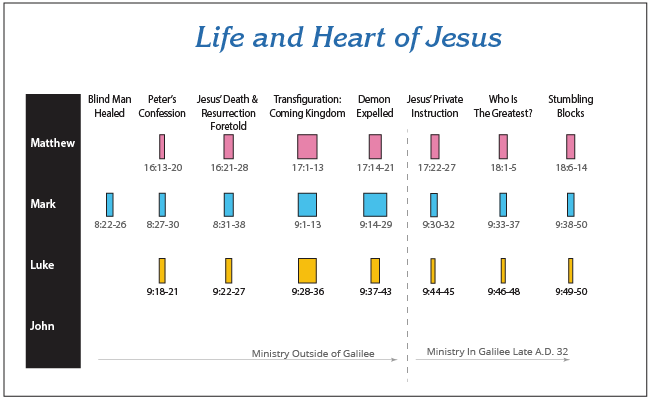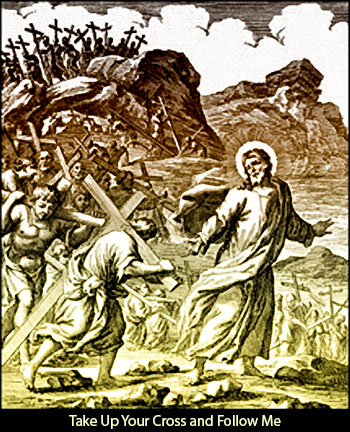Have you ever wondered why Cain did not obey God after He spoke directly to Cain after he offered his offering? Genesis 4:1-15 tells us that sometime after Adam and Eve sinned and were removed from the Garden of Eden, both Cain and Abel offered a sacrifice to God. Cain offered some type of fruit or vegetable, and Abel offered an animal sacrifice. But God rejected Cain’s offering and accepted Abel’s. Cain responded in anger and so God visited him, warning him to not give into his anger. Verse 8 says that Cain even told his brother that God approved of Abel’s offering and not his own. I wonder, why did he do that? Why share your unhappiness with your brother? Was he looking for a fight? Did he want an apology? What was his goal? Cain’s response is surprising. He eventually rejected God’s warning and murdered his brother, suffering the result. It is obvious that Cain was self-centered and very proud. How would you have responded? This study, is about self-sacrifice. As you read this study ask yourself, “How will I respond?”
Background
In our last study, Jesus asked the disciples, “Who do people say that the Son of man is?” The disciples thought and gave Jesus several answers. Then He asked, “Who do you say that I am?” And Peter said, “You are the Christ.” Jesus was the Messiah – the Christ. One would think that truth would have been thrilling and motivated the disciples to do whatever He asked. Then He surprised them by predicting His death and resurrection. It is obvious that they did not like that message because Peter responded by rebuking the Lord. Did Peter miss the fact that Jesus had predicted He would return to life? Or, did Peter only see that his Messiah would die and maybe that was unthinkable? Did He only see the pain, or was the whole scenario just unacceptable? Jesus responded by rebuking Peter,
Get behind Me, Satan! You are a stumbling block to Me; for you are not setting your mind on God’s interests, but man’s. Matthew 16:23 (NASB)
Jesus’ rebuke must have been a shocking disappointment to Peter. How would you have responded if you had been Peter?

Come, Deny Yourself
In the opening verse of this study (Matthew 16:24-27; Mark 8:34-37; Luke 9:23-25) Jesus continues with an incredible statement to His disciples,
Then Jesus said to His disciples, “If anyone wishes to come after Me, he must deny himself, and take up his cross and follow Me.” Matthew 16:24 (NASB)
Jesus had used similar words earlier in Matthew 10:37-39. Here is the passage,
He who loves father or mother more than Me is not worthy of Me; and he who loves son or daughter more than Me is not worthy of Me. And he who does not take his cross and follow after Me is not worthy of Me. He who has found his life will lose it, and he who has lost his life for My sake will find it. Matthew 10:37-39 (NASB)
When Jesus said that “he who does not take his cross and follow Me,” He was referring to individuals who are not actively “taking” and “following.” That is, a person who is not willing to actively take his cross and follow Jesus is not worthy of Him. Jesus was not talking about picking up a cross one time in our life, but on every day. In Luke 9:23, Jesus said this,
And He was saying to them all, “If anyone wishes to come after Me, he must deny himself, and take up his cross daily and follow Me.” Luke 9:23 (NASB)
The gospel accounts indicate that when Jesus was moving toward the place of His death, Golgotha or the “Place of a Skull,” apparently He was not able to carry His cross. Consequently, the Roman soldiers enlisted a man named Simon of Cyrene (Luke 23:26) to drag Jesus’ cross to the place of His death. That is the picture Jesus is painting of denying ourselves. It is picking up the cross and dragging it to our death. Jesus is saying that we need to decide to die to ourselves and move towards that end. Start dragging that cross and continue until you reach the Golgotha God has for you. Did you see the word “daily”? That means dying to ourselves every day. Unlike Cain, we are to deny ourselves daily and follow Jesus.

John MacArthur makes the following comment about this passage,
To the people of Jesus’ day the cross was a very concrete and vivid reality. It was the instrument of execution reserved for Rome’s worst enemies. It was a symbol of the torture and death that awaited those who dared raise a hand against Roman authority. Not many years before Jesus and the disciples came to Caesarea Philippi, 100 men had been crucified in the area. A century earlier, Alexander Janneus had crucified 800 Jewish rebels at Jerusalem, and after the revolt that followed the death of Herod the Great, 2,000 Jews were crucified by the Roman proconsul Varus. Crucifixions on a smaller scale were a common sight, and it has been estimated that perhaps some 30,000 occurred under the Roman authority during the lifetime of Christ. When the disciples and the crowd heard Jesus speak of taking up the cross, there was nothing mystical to them about the idea. They immediately pictured a poor, condemned soul walking along the road carrying (which is an accurate translation of airo, meaning “to raise, beat, or carry”} the instrument of his execution on his back. A man who took up his cross began his death march, carrying the very beam on which he would hang.[1]
Jesus’ message is that we must be willing to do more than experience inconvenience by carrying the cross. We must be willing to deny ourselves and march to our death for Him. This is more than serving Jesus as a leader at some church or attending a leadership meeting at church. Jesus is talking about more than sacrificing some of our time to attend a Bible study, saying hello on Sunday to our friends, making it to church on Sunday, or giving God a meager portion of the money that God has given us. Actually, God wants more than that. He wants your life – you. He wants all of you. Listen to Romans 12:1,
Therefore I urge you, brethren, by the mercies of God, to present your bodies a living and holy sacrifice, acceptable to God, which is your spiritual service of worship. Romans 12:1 (NASB)
Did you notice the phrase “present your bodies a living and holy sacrifice”? That means that we are not to plan to give ourselves later but to do it now. We need to be willing to die to ourselves today, this very minute. If you are really serious, you will be willing to die to yourself this very minute and to live for only Jesus. You will sacrifice your desires for your friends, time, money, family and for – everything! That was Jesus’ message earlier in His ministry. Listen,
He who loves father or mother more than Me is not worthy of Me; and he who loves son or daughter more than Me is not worthy of Me. And he who does not take his cross and follow after Me is not worthy of Me. Matthew 10:37-38 (NASB)
Do you love your spouse or your children more than Jesus? Would you go to your child’s soccer game rather than go to church and hear the Word of God taught? Would you rather watch the Super Bowl than hear the Word of God taught? If so, you love your child more than Jesus. Do you have a job that regularly keeps you away from church? If so, then it is clear that Jesus is not first in your life, and according to Him you are not worthy of Him. It is clear you are not denying yourself. You are not taking up your cross and following Him.

Dr. J. Vernon McGee makes this comment,
You already know that the hardest person in the world to deny is yourself. To deny myself dessert is hard enough, but to deny myself is difficult indeed. To deny myself is to put self out of the picture and to put Christ in the place of self.[2]
Taking up your cross and following Jesus is not denying ourselves ice cream, cars, books, television, sex, sports, or some other pleasure. Jesus is talking about denying ourselves something much worse – your whole self. If there is something more important than Jesus, then you are not denying yourself for Jesus. You are not taking up your cross and following Him and if you are unwilling to change, you won’t.
The Greek word that is translated as “deny” is aparneomai. It means “to refuse to give any thought to, to express concern for, or to pay attention to.” The idea is that we do not think about ourselves. We are not concerned for ourselves. Here is an illustration of this word,
Dudley Tyng served as his father’s assistant at Philadelphia’s church of the Epiphany and was elected its pastor when his father retired in 1854. He was only twenty-nine when he succeeded his father at the large Episcopal church, and at first it seemed a great fit. But the honeymoon ended when Dudley began vigorously preaching against slavery. Loud complaints rose from the more conservative members, resulting in Dudley’s resignation in 1856.
He and his followers organized the Church of the Covenant elsewhere in the city and his reputation grew. He began noontime Bible studies at the YMCA, and his ministry reached far beyond his own church walls. Dudley had a burden for leading husbands and fathers to Christ, and he helped organize a great rally to reach over the sea of faces and declared, “I would rather this right arm were amputated at the trunk than that I should come short of my duty to you in delivering God’s message.” Over a thousand men were converted that day.
Two weeks late Dudley was visiting in the countryside, watching a corn thrasher in the barn. Dudley’s hand moved too close to the machine and his sleeve was snared. His arm was ripped from its socket, the main artery severed. Four days later his right arm was amputated close to the shoulder. When it appeared he was dying, Dudley told his aged father, “Stand up for Jesus, father; and tell my brethren of the ministry to stand up for Jesus.”
Rev. George Duffield of Philadelphia’s Temple Presbyterian Church was deeply stirred by Dudley’s funeral, and the following Sunday he preached from Ephesians 6 about standing firm for Christ. He read a poem he had written, inspired by Dudley’s words: Stand up for Jesus, ye soldiers of the cross, lift high His royal banner, it must not suffer loss. The editor of a hymnal heard the poem, found the appropriate music and published it. Stand Up, Stand Up for Jesus soon became one of America’s favorite hymns, extending Dudley’s dying words to millions.[3]
Dudley Tyng had said he would be willing to lose his arm in the process of serving Jesus Christ. He did not know that days later he would become an illustration of one who was willing to stand up for Jesus and pay the price.
Losing Your Life
According to verses 25-26 Jesus then added this statement,
For whoever wishes to save his life will lose it; but whoever loses his life for My sake will find it. For what will it profit a man if he gains the whole world and forfeits his soul? Or what will a man give in exchange for his soul? Matthew 16:25-26 (NASB)
Jesus makes a paradoxical statement. He says that one who wants to keep his life will lose it. Now, frankly, I think that is exactly what you and I do. We are consumed with our lives and what we think is essential for life. But Jesus says that is the wrong strategy. Trying to save our life results in loss. But a person who sacrifices themselves for Jesus will find it.
Then Jesus concludes with this statement,
For the Son of Man is going to come in the glory of His Father with His angels, and will then repay every man according to his deeds. Matthew 16:27 (NASB)
One who truly believes in Jesus will do more than believe that Jesus existed, died for our sins, and returned to life as proof that He was God and could forgive our sins. One who truly believes and becomes a follower of Jesus will give their lives to God. Those are the ones who are going to heaven.
Conclusion
In the first verse of our study, Jesus said,
If anyone wishes to come after Me, he must deny himself, and take up his cross and follow Me. Matthew 16:24 (NASB)
We have discovered that denying ourselves means that we should not have any concern about ourselves. We should not give any thought about what we want. If we are more concerned about our lives, our pleasures, our friends and family, then we are not ready to “take up” our cross and follow Jesus Christ. That is, we are not ready to sacrifice ourselves for Him. We have covered all of the important thoughts in the verse, except for one. The key word is “wishes.” Jesus said, “if anyone wishes . . .” It all comes down to “wishes.” Do you wish to come after Jesus? Or, are you still more interested in yourself? He said if we wish, then we will come after Him and then we will find our life.
The story is told of a plantation slave in the old South who was always happy and singing. No matter what happened to him, his joy was always abounding. One day his master asked him, ‘”What have you got that makes you so happy?” The slave replied, “I love the Lord Jesus Christ. He has forgiven my sin and put a new song in my heart.” “Well, how do I get what you have?” his master asked. “You go and put on your best Sunday suit and you come down here and work in the mud with us and you can have it.” came the reply. “I would never do that.” the owner retorted indignantly as he rode off in a huff. Some weeks later, the master asked the same question and was given the same answer. A few weeks later, he came a third time and said, “Now be straight with me. What do I have to do to have what you have?” “Just what I’ve told you the other times,” came the answer. In desperation, the owner said, “All right, I’ll do it.” “Now you don’t have to do it,” the slave said. “You only had to be willing.”[4]
It all comes down to – “wishes.” That is, are you willing to deny yourself and die to your self.
It starts by admitting that you are a sinner who needs your sins forgiven, and then asking God to forgive your sins. You need to be willing to allow Him to take over your life. If you have never done that, then you are not yet willing.
If you have taken that important step and asked God to forgive your sins and you have told Him to take control of your life, then you need to ask yourself, “Am I daily willing to sacrifice myself for Him?” The answer to that question will be evident in your life. Are you sacrificing for Him?
References:
1. John MacArthur. Matthew 8-15. The MacArthur New Testament Commentary. Moody Press. 1987. , p. 49.
2. J. Vernon McGee. Matthew Through Romans. Thru The Bible. Vol. IV. Thomas Nelson Publishers. 1983. pp. 93-94.
3. Robert J Morgan. Preacher’s Sourcebook of Creative Sermon Illustrations.. Thomas Nelson Publishers. 2007. p. 822.
4. Ibid. John MacArthur., p. 51